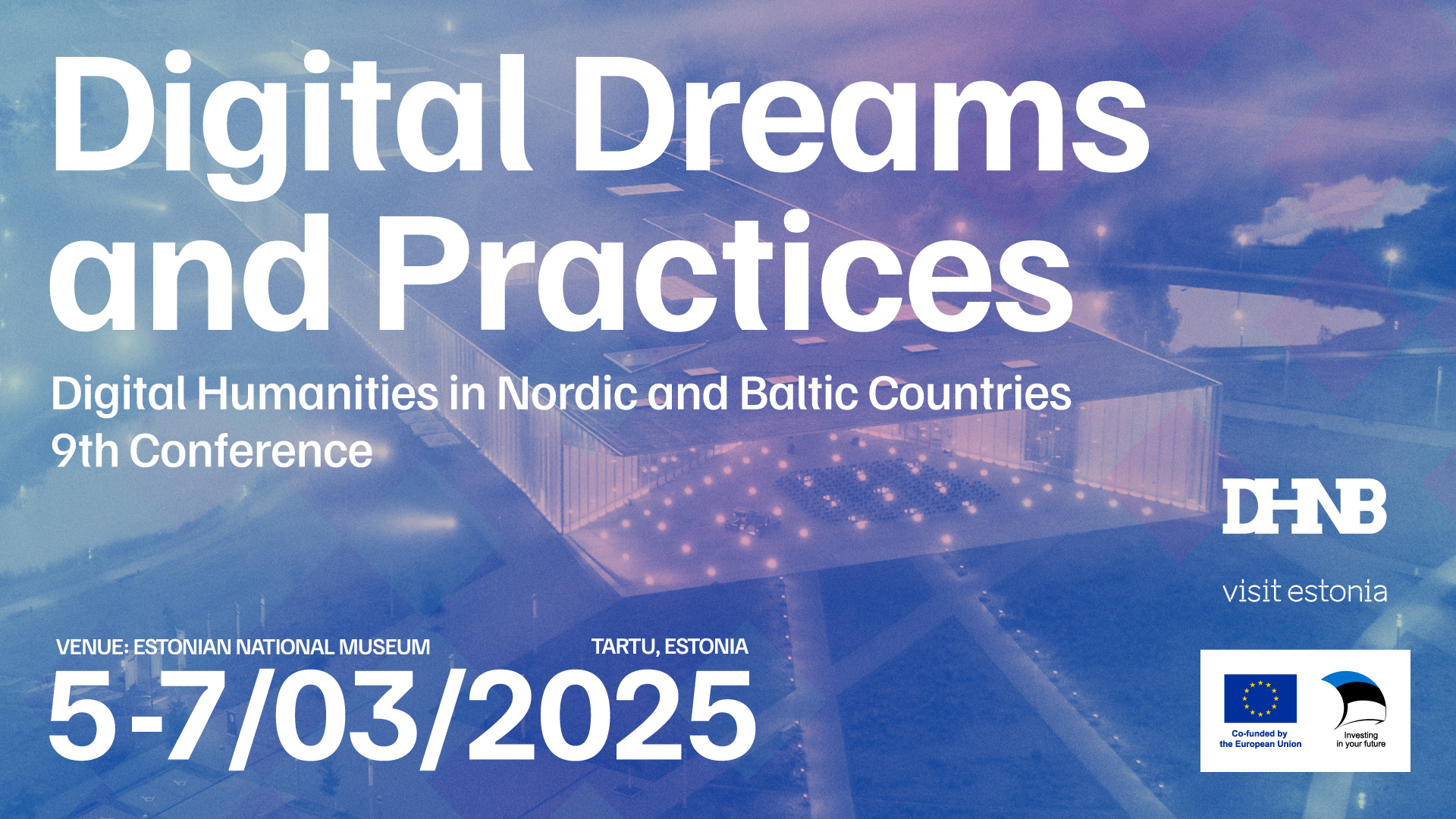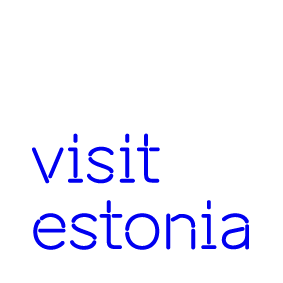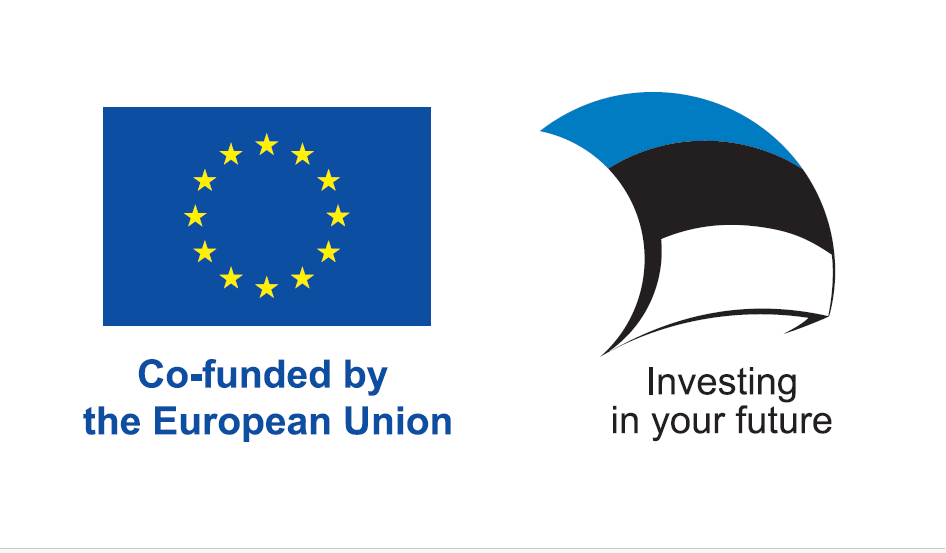
DHNB conferences focus on research, education and communication in the interdisciplinary field of digital humanities in the Nordic and Baltic regions and beyond. The conference has a history of bringing together academics, researchers, students, and professionals with an interest in applying digital methods to research relevant to humanities, social sciences and arts. DHNB invites contributions from all domains of digital humanities.
Special Theme 2025
With the special theme of DHNB2025 ‘Digital Dreams and Practices’ we aim to delve into the synergy between dreams in digital humanities and their practical applications, seeking to maximize value for both academia and society at large. Our focus sharpens on the transformative potential of AI, its integration with traditional humanities, and its role in transcending academic boundaries. We invite scholars, practitioners, and societal stakeholders to explore:
(1) the integration of traditional humanities scholarship with computational techniques;
(2) the transition of digital humanities research from the ‘ivory tower’ of academic theory to societal practice;
(3) the practical applications of Artificial Intelligence.
These chosen timely sub-themes will be interpreted and placed in today’s context in three keynote speeches of the conference.
Keynote Speakers >>>
Book of Abstracts >>>
Workshops and Tutorials >>>
Call for Post-Proceedings (DL 15/06/25) >>>
The presenters of DHNB 2025 are welcome to submit their papers for post-proceedings that will be published as a special issue of DHNB Publications through ConfTool in the categories of long, short, and poster paper.
Those who presented in other categories (panels or workshops) are welcome to submit their articles by selecting the track that best suits with their contribution.
Programme in short
March 3 and 4
March 5
11:00-12:30 Opening words. Plenary session 1: Maciej Eder
12:30-13:30 Lunch
13:30-15:30 Long paper session
15:30-16:00 Coffee break
16:00-17:40 Short paper session
18:00 Welcome reception at the University of Tartu Museum
March 6
9:00-11:00 Long paper session
11:00-11:30 Coffee break
11:30-13:00 Plenary session 2: Andrea Kocsis
13:00-14:00 Lunch
14:00-16:00 Short paper session
16:00-18:00 Poster session (1 min presentations) + posters and demos + coffee
18:00-19:00 DHNB General Meeting /ENM tours
19:30 Conference dinner
March 7
9:00-10:30 Panel session
10:30-11:00 Coffee break
11:00-12:30 Plenary session 3: Meelis Kull
12:30-13:30 Lunch
13:30-15:00 Short paper & panel session
15:00-15:30 Coffee break
15:30-17:00 Final session: DHNB announcements & conference prizes & introduction of the DHNB2026 & closing words
Timeline
- 15/08/2024 CfP opens
- 22/10/2024 CfP closes
- 22/10/2024 – 1/12/2024 CfP review period
- 15/12/2024 Notifications issued
- 15/12/2024 Registration opens
- 31/01/2025 Deadline for submitting revised full papers and abstracts
- 07/02/2025 Early bird deadline for registration
- 19/02/2025 Registration closes
- 3-4/03/2025 Pre-conference meetings, workshops, doctoral consortium, excursions
- 5-7/03/2025 Conference
- 8-9/03/2025 Post-conference blues
- 15/05/2025 Deadline for submitting papers for post-proceedings
Organizers
- Estonian Literary Museum (Mari Väina, Kadri Vider, Liisi Laineste, Olha Petrovych)
- Estonian National Museum (Pille Runnel, Agnes Aljas)
- Institute of the Estonian Language (Martin Eessalu)
- Tallinn University (Andres Karjus)
- University of Tartu (Liina Lindström, Joshua Wilbur)
- in collaboration with Estonian Society for Digital Humanities
Contact: dhnb2025@dhnb.eu
Program Committee
Anda Baklāne, Katrine F. Baunvig, Coppelie Cocq, Normunds Grūzītis, Olga Holownia, Ross Deans Kristensen-McLachlan, Krister Kruusmaa, Alie Lassche, Mahendra Mahey, Johan Malmstedt, Eetu Mäkelä, Kristoffer Nielbo, Mila Oiva, Krista Stinne Greve Rasmussen, Sulev Reisberg, Oleg Sobchuk, Artjom Šela, Piret Viires.
Practical Information
For those interested in Computational Linguistics and Language Technology there is a convenient option to visit two conferences in Estonia within one week. The Joint 25th Nordic Conference on Computational Linguistics and 11th Baltic Conference on Human Language Technologies NoDaLiDa/Baltic-HLT 2025 takes place from March 3–4 in Tallinn, just before DHNB 2025.
Supporters
In March 2025, the Digital Humanities in the Nordic and Baltic Countries (DHNB) conference will be held in Estonia. DHNB, an associated organization of the EADH, was established to strengthen research, education, and communication in the field of Digital Humanities. The conference will bring together academics, researchers, students, librarians, archivists, curators, and museum professionals who are interested in creating and using digitized and born-digital collections as research data in the humanities, social sciences, and arts.
The conference is co-funded by the European Union and Enterprise Estonia with funding of 27 064,31 euros.
Call for Papers, Panels, Posters, Demos, Workshops, Tutorials >>>
Registration >>>
Conference Venues >>>
Travel information >>>
Programme >>>
Full Programme in details, download >>>

